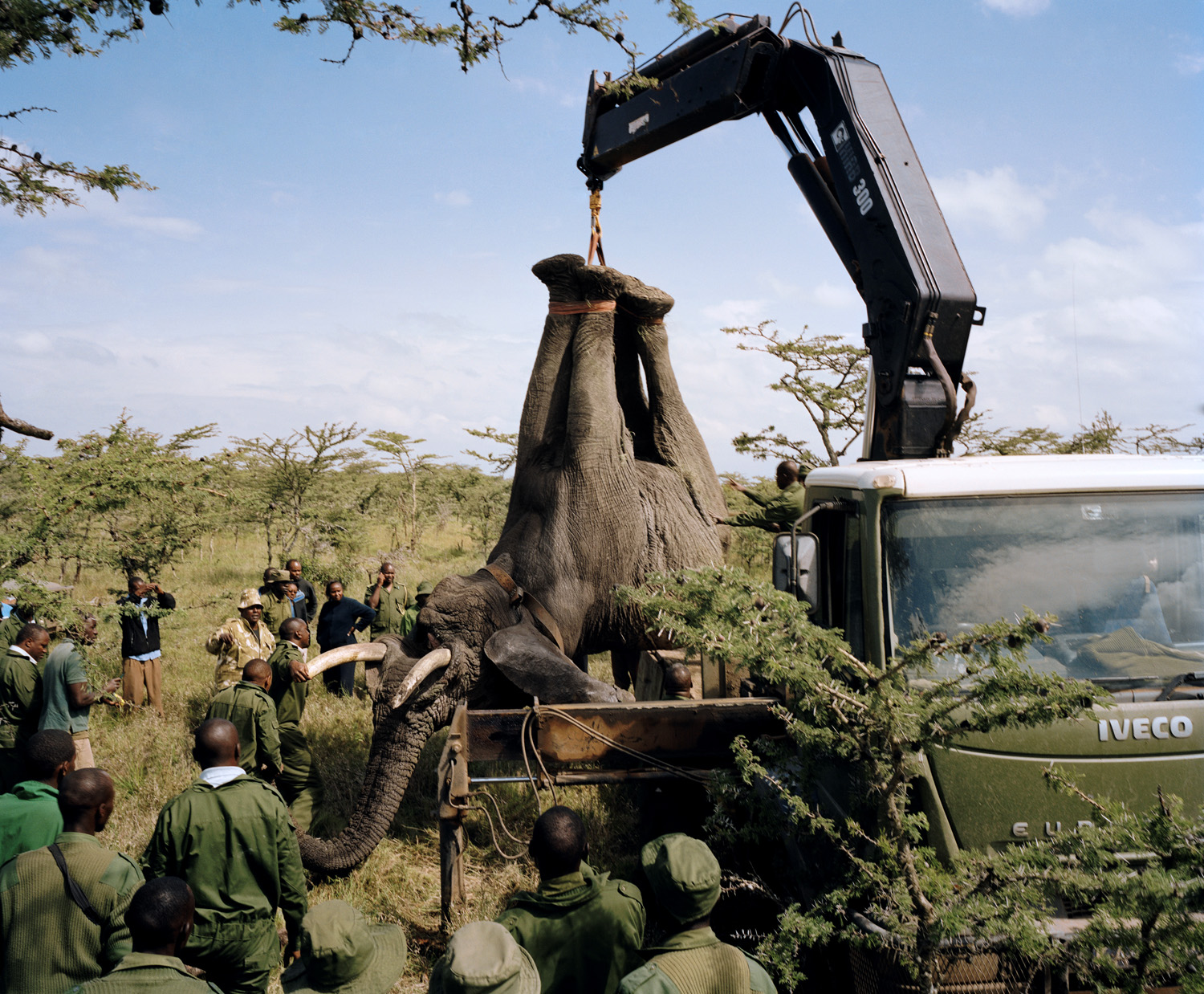
It is a last kindness. A man in camouflage takes out a knife and severs the horn of a rhinoceros, depriving the animal of its most iconic feature. The poachers who have killed this animal have fled, leaving behind their prize: the keratin that makes up the horn. It’s a substance so valued for its use in traditional Asian medicine that vast numbers of rhinos are being slaughtered for it. Severing the horn will keep it off the black market. Even in death, the rhino must be maimed to be saved.
That’s a measure of just how dire the present has become for the rhinos and elephants of Africa. After years of relative calm, trafficking in species like elephants and rhinos doubled from 2007 to 2013, largely to meet the growing demand for ivory and other animal products from the rising consumer class of Asia. By some estimates, wildlife trafficking is the fourth largest international crime, carried out by global criminal syndicates, for whom the trade is almost as lucrative as drugs but far safer. There’s even evidence that poaching now fuels terrorism–militant groups like Somalia’s al-Shabab derive a portion of their income from wildlife trafficking.
But in the face of this loss, there are those who fight back. David Chancellor’s photographs document the work of the Northern Rangelands Trust, a Kenya-based NGO that has helped community conservancies learn to protect the wildlife they live alongside. Sometimes that means protecting people, as when an ornery elephant is relocated to reduce human-animal conflict. But often it’s the hard, dangerous battle against wildlife trafficking. As many as 1,000 park rangers have been killed in battles with poachers over the past decade. On the black market, slaughtering animals will always pay better than preserving them. Yet Chancellor’s subjects soldier on, fighting to protect beings that cannot protect themselves.
More Must-Reads from TIME
- Cybersecurity Experts Are Sounding the Alarm on DOGE
- Meet the 2025 Women of the Year
- The Harsh Truth About Disability Inclusion
- Why Do More Young Adults Have Cancer?
- Colman Domingo Leads With Radical Love
- How to Get Better at Doing Things Alone
- Michelle Zauner Stares Down the Darkness
Contact us at letters@time.com